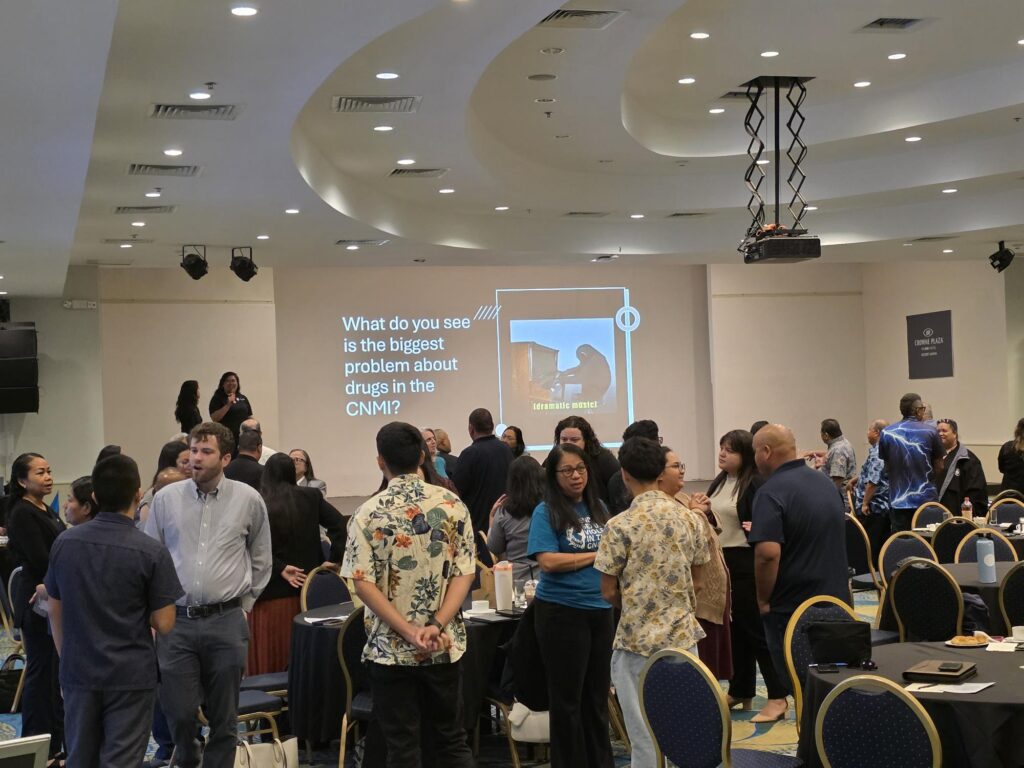SUPREME Court Associate Justice John A. Manglona said the CNMI is “facing serious issues with substance use and mental health, and the traditional approach of waiting until someone breaks the law and locking them up has never been enough.”
“We need a system that sees the complete picture, the whole picture, and a system that responds early and offers meaningful ways forward,” he added in his remarks during the 2025 CNMI Judiciary Treatment Court Summit at the Crowne Plaza Resort Saipan on Thursday.
“We believe that justice can be delivered with compassion and integrity, and of course, there’s always accountability,” Manglona said, adding that the summit is not about one sector, one office or one program.
“Our strength lies in the fact that we are coming together, bringing different experiences and tools and different insights to solve the same challenge,” he said.
For his part, Drug Court Manager Edward Diaz said that “treatment courts are not only about justice,” and they “are not merely a response to substance use disorders and severe mental illness — they are a response to the problem, providing individuals with the opportunity to rebuild their lives, restore broken relationships and regain their footing.”
Summit participants included judiciary officials, law enforcement officers, emergency responders, healthcare providers, social services, and advocacy group members.
Diaz encouraged them “to reflect on the lives touched by the work you do — behind every statistic is a person, a parent, a sibling, a friend, son or daughter, yearning for change and deserving of a second chance.”
“Together, we have the power to identify gaps, break barriers, reduce the availability of these harmful substances and hopefully create lasting, systemic change,” he added.
The summit’s theme was “From Dialogue to Action: Committing to Real Solutions.”
It discussed the pervasive issue of drug abuse in the community, highlighting its impact on productivity, housing, transportation, public safety and healthcare.
Diaz noted that 99 out of 100 drug court participants are unemployed and often lack basic healthcare.
Transportation issues and criminal justice costs are also a concern, he added.
“They can’t make it to their appointments, they can’t make it to their treatment, they can’t even make it to their court hearings because of transportation…. And maybe another [issue] is the criminal justice costs [and] how we have to address the problems because of these drug issues,” Diaz said.
He emphasized the importance of having baseline data to address the drug issue effectively.
He said statistics is important “because we cannot define a problem if we do not know what the baseline is, and you don’t even see the problems.”
Redemption
The keynote speaker, Corrections Officer Romeo Herman, shared his transformative journey from addiction to redemption.
Having started with marijuana and alcohol at 12, meth at 14, and gambling in his mid-20s, Herman said, “I hit rock bottom financially and personally.”
He emphasized the importance of family and community in overcoming addiction and urged the community “to support those struggling with addiction, maintain hope, and believe in the possibility of change.”
Among the other officials who attended the summit were Lt. Gov. David M. Apatang, Chief Justice Alexandro Castro, District Court for the NMI Chief Judge Ramona V. Manglona, Magistrate Judge Heather Kennedy, Associate Justice Perry Inos, Drug Court Judge Teresa Kim-Tenorio, and Mental Health Court Judge Lillian Tenorio.
Representatives of the HOPE Recovery Center, the Community Guidance Center, the Commonwealth Healthcare Corp., the Department of Corrections, the Department of Public Safety, the Office of the Attorney General, the Public Defender’s Office, and the Youth Congress were also present at the summit.
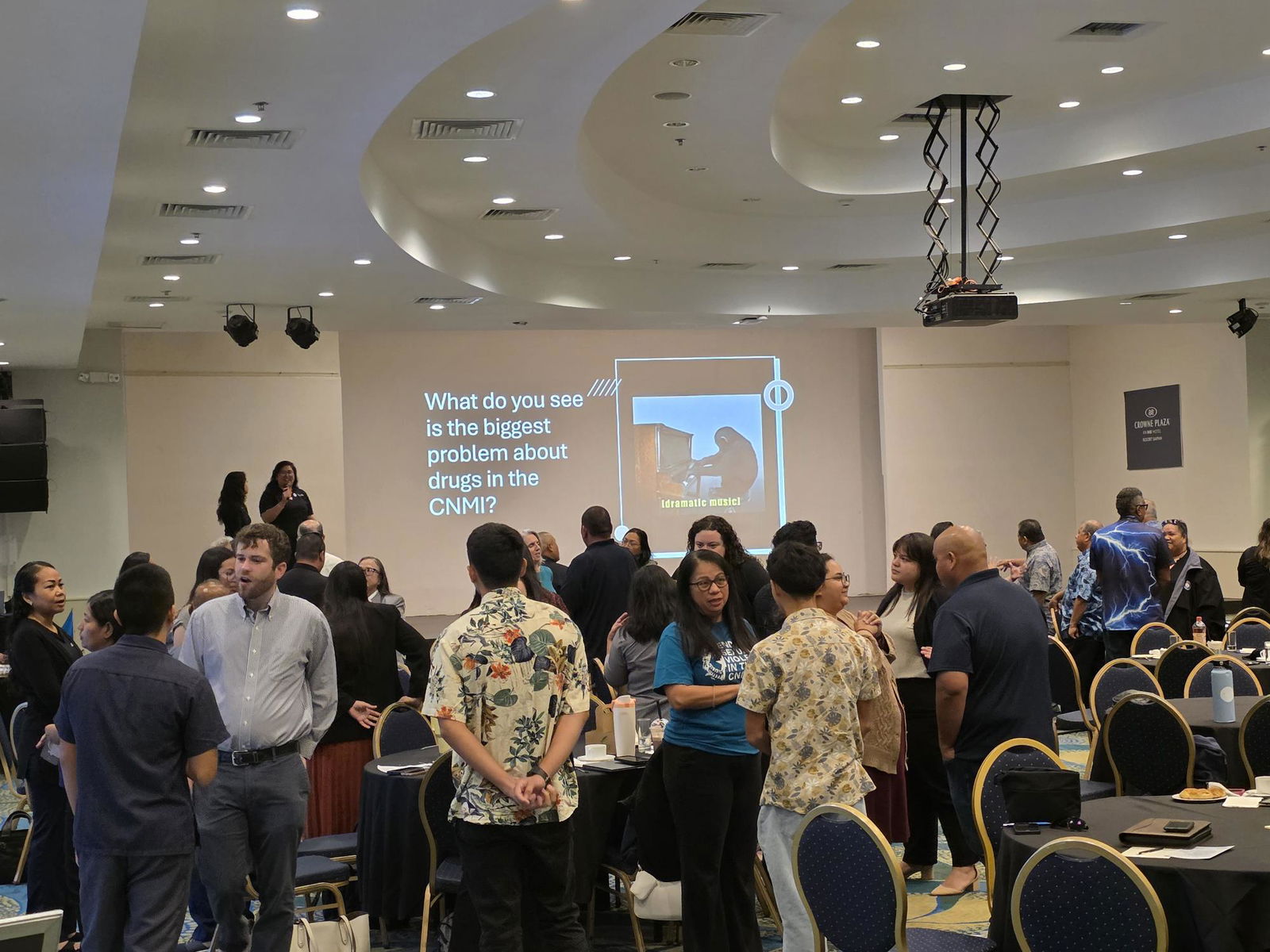
Treatment court stakeholders participate in an “ice breaker” activity Thursday.
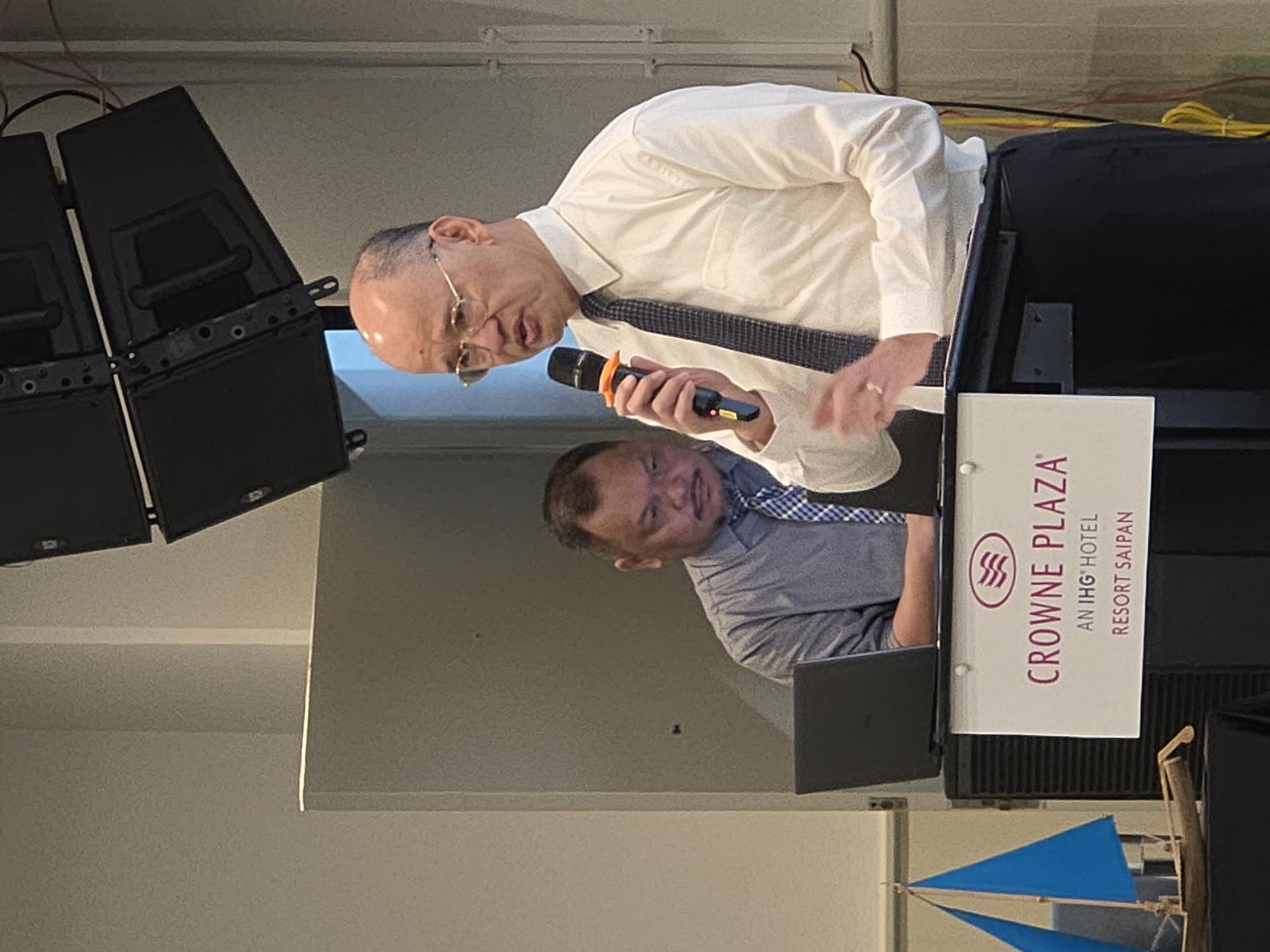
Justice John Manglona delivers his remarks with Edward Diaz, drug court manager, seen in the background.
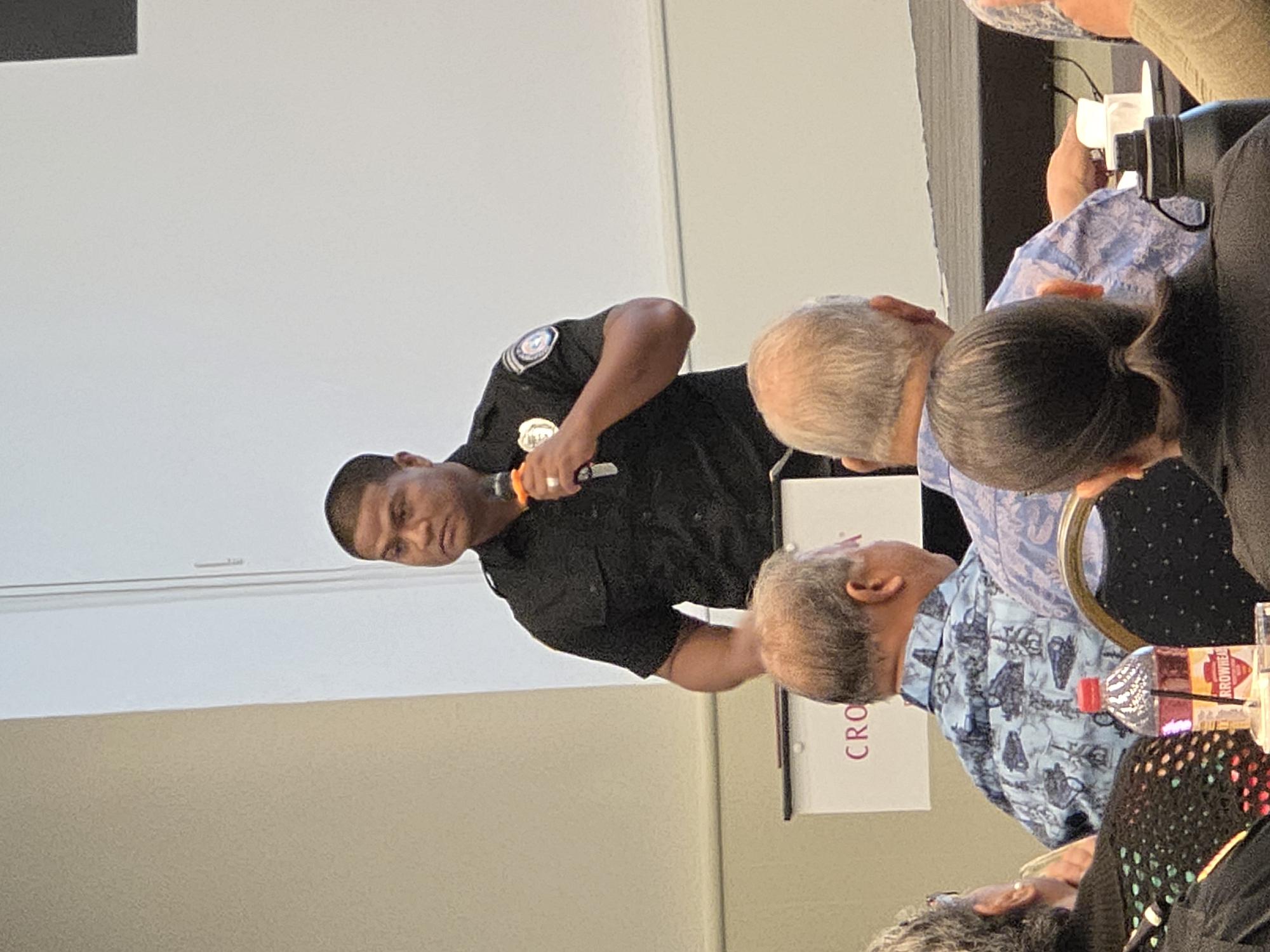
Corrections Officer Romeo Herman, the 2025 Treatment Court summit keynote speaker.
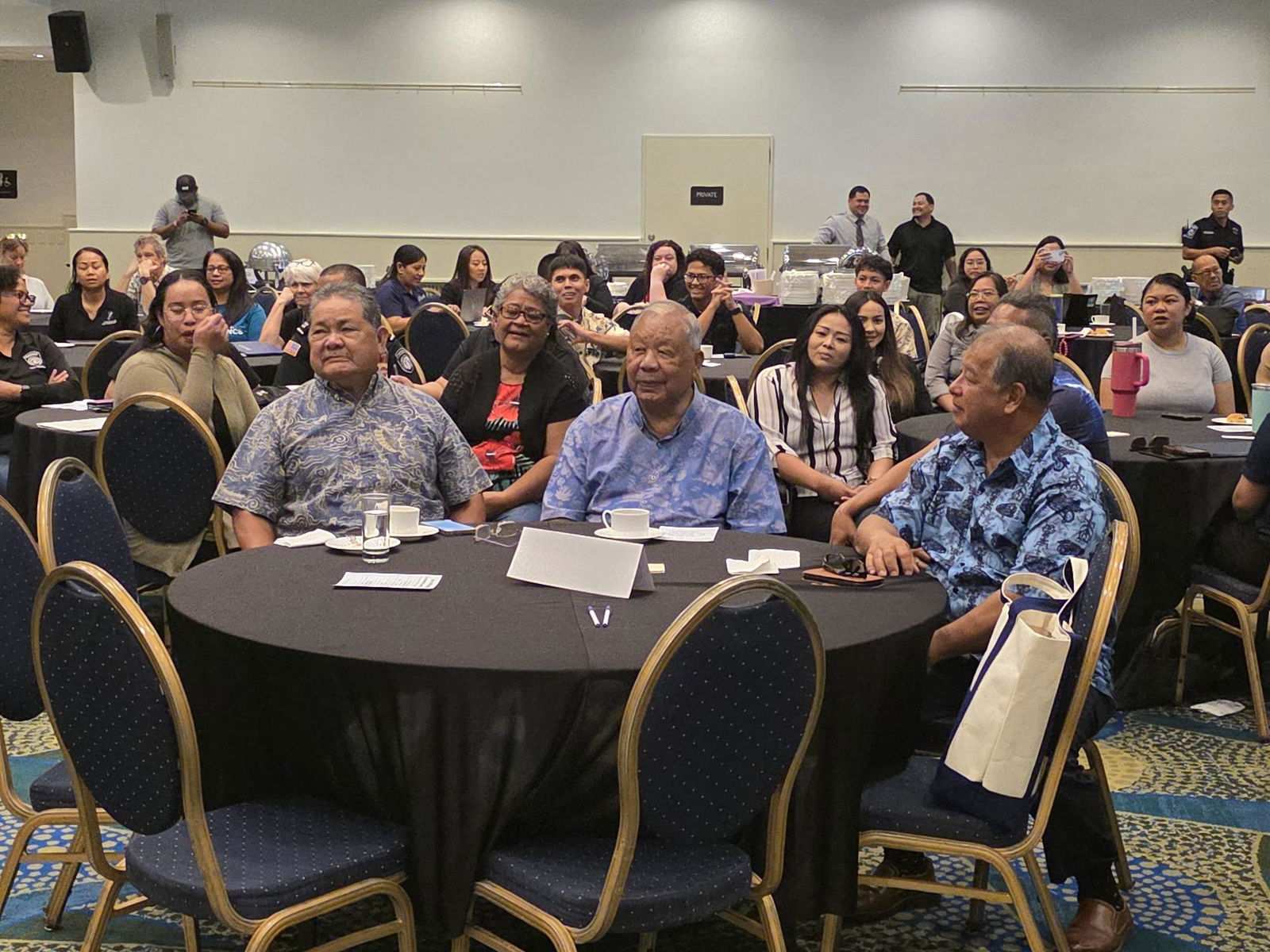
Chief Justice Alexandro Castro, Lt. Gov. David Apatang, and Justice Perry Inos at the 2025 Treatment Court Summit on Thursday.









